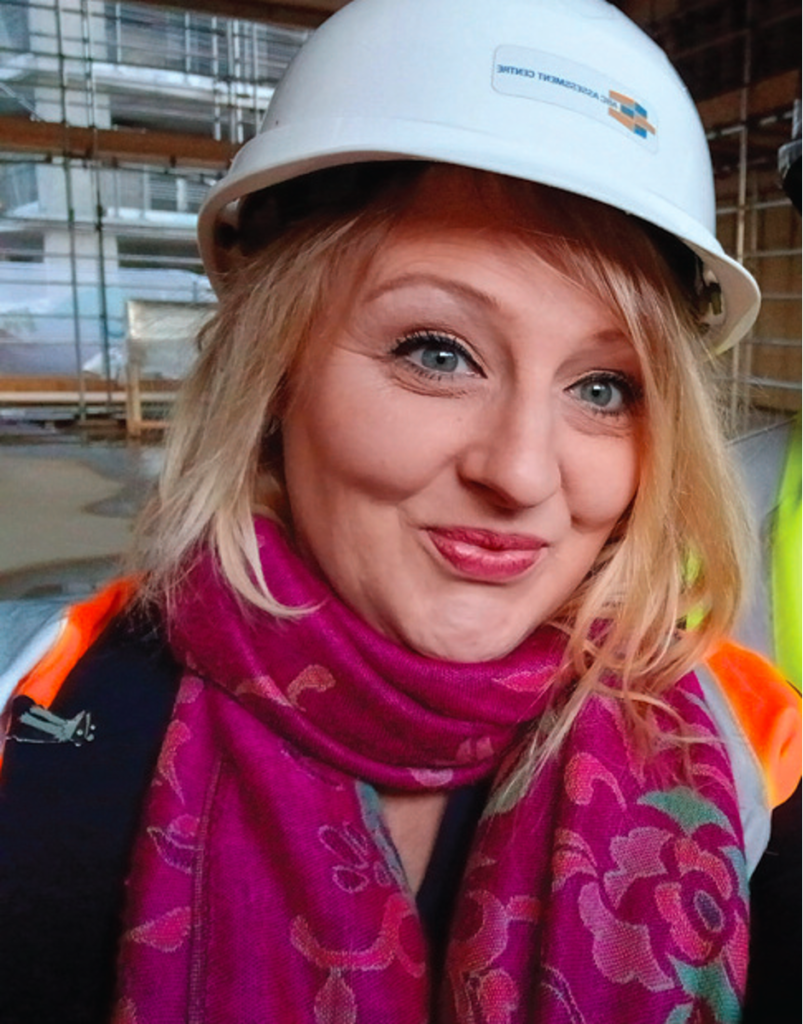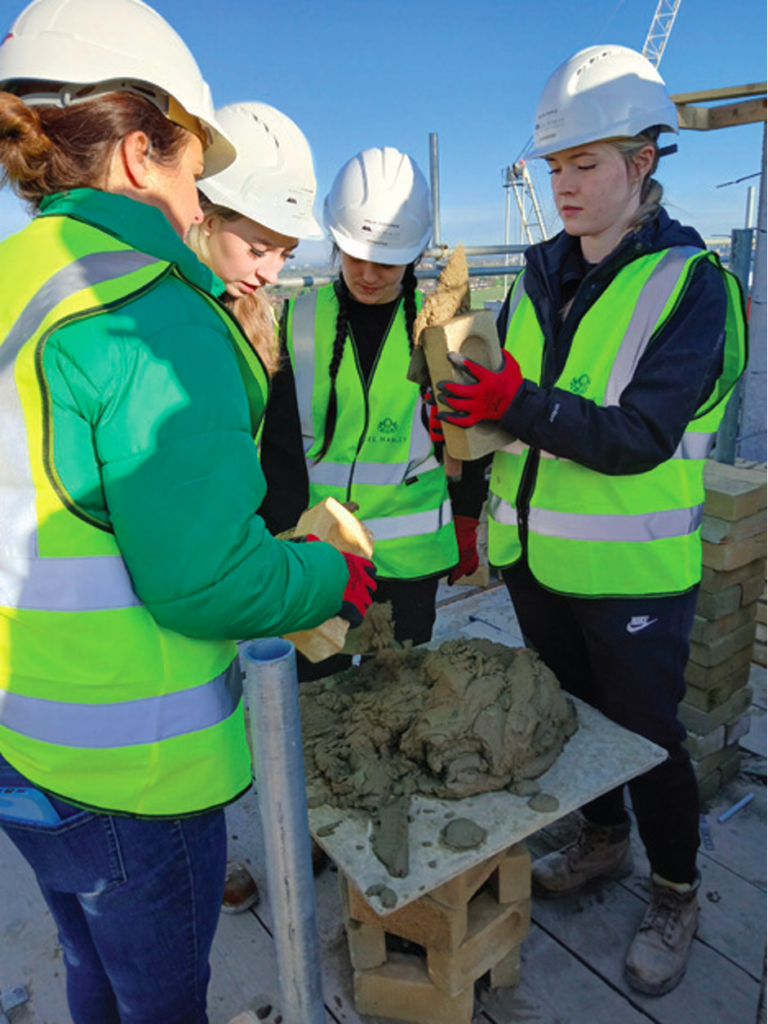
PHPD talks to Eve Livett, CEO of the Association of Brickwork Contractors (ABC) about the skills gap and the growing need for diversity in the construction industry.
How did you get into the construction industry?
I entered construction somewhat by accident. I had a ‘dream’ of being a singer but after many years gigging, I found myself gravitating towards a more stable, reliable career! My first role within the construction environment was working at The Brick Development Association. It was here that I became enveloped with the beauty of brick and the vital role that it plays within the built environment. At that time, the Association of Brickwork Contractors (ABC) was governed by The Brick Development Association, and I remember always thinking about how much potential and sway the organisation could have in its own right, especially in taking the lead in tackling challenges such as skills shortages and the need for more trade apprenticeships. I put forward my thoughts, and these proposals impelled Geoff Irvine and the company directors to offer me the first-ever employed position at the ABC. Ultimately, my job role was to raise the profile of the Association and deliver on my expectations and intentions surrounding training and education.
Why should there be more diversity in the industry?
Studies have shown that construction sites are more productive with women on board, which highlights the significant value of diversity and inclusivity in the trade. Women bring unique perspectives and approaches to problem-solving, fostering a more collaborative and innovative work environment. In addition to this, promoting diversity and inclusivity in the construction industry helps address the skills shortage by widening the talent pool. It encourages a more inclusive culture where everyone, regardless of gender, feels valued and respected. This not only boosts morale but also enhances employee retention and attracts new talent to the sector. By embracing diversity, the construction industry can build stronger, more resilient teams that are better equipped to meet the demands of projects.
Why do you think there is such an issue with diversity in the industry?
In recent years, the construction and engineering sectors have witnessed a remarkable surge in the number of young women undertaking apprenticeships – a staggering 366% increase, to be precise. This statistic represents a significant shift in the traditionally male-dominated landscape of these industries. However, despite this encouraging trend, women still constitute a mere 15% of the current workforce.
One of the primary hurdles faced by women entering construction is the enduring stigma associated with the industry. It has long been viewed as a physically demanding, male-centric career, with stereotypes often discouraging women from pursuing roles in this sector. Breaking down these misconceptions is essential to creating a more inclusive and diverse industry.

How can we fix this issue and what is the Association of Brickwork Contractors (ABC) doing to tackle it?
To effect real change, it’s vital to move away from this outdated stigma and embrace diversity wholeheartedly. This entails not only fostering a culture of inclusivity within construction companies but also investing in recruitment strategies that actively seek out and welcome women into the workforce. We need to see more companies invest in targeted outreach programmes, apprenticeships, and mentorship opportunities specifically tailored for women.
Additionally, creating supportive and inclusive work environments is key to retaining women in construction careers. Providing ongoing training, professional development, and pathways for career advancement are essential components of fostering a diverse and thriving workforce. Changing perceptions about women in construction requires a concerted effort from all stakeholders including industry leaders, educators and society at large. By challenging stereotypes and showcasing the achievements of women already making waves in the sector, we can inspire the next generation of female talent to pursue careers in bricklaying and other roles in construction, not just the trades. We must work harder to showcase the diverse roles and progression opportunities available within the industry in order to dispel myths.
The ABC encourages its members to sign up to the Fairness, Inclusion and Respect programme, an industry-wide initiative that supports businesses in the built environment to meet legal obligations around equality and diversity in order to create a more inclusive sector. The programme offers training, resources and guidance so that employers can address workplace culture challenges as a way to attract and maintain a more diverse workforce.
What else is the Association doing more broadly at the moment and what are its current goals?
Part of my strategy was to use the ABC and its existing members to trigger significant changes in the way a career in bricklaying has always been publicly perceived by promoting the many fantastic opportunities to young people about available apprenticeships in the sector. Therefore, I worked with many further education establishments and employers to devise robust routes into the industry and review national curriculums against industry requirements. This provoked the thought of establishing a more employer-led training provider working directly in line with its sector, The ABC Assessment Centre which was launched in 2018.
The ABC Assessment Centre currently provides two core services; trade and management qualifications and accredited training for bricklayers. We also make sure that employers are looked after in regard to receiving any grant or funding associated with our training and qualifications. A major part of what we do is supporting students and bridging the gap between education and employment. This is so important and something I feel hugely passionate about. There are hundreds of students on bricklaying courses in colleges who, unfortunately, never get to set foot on a construction site, or don’t get the chance to interact with employers, which in turn, sadly sees them complete their courses and not move into construction employment. We work really hard to try and combat these barriers where we can.
For more information on the Association of Brickwork Contractors visit The ABC Assessment Centre – UK Bricklayer Training & Construction NVQs (bricktraining.co.uk).




